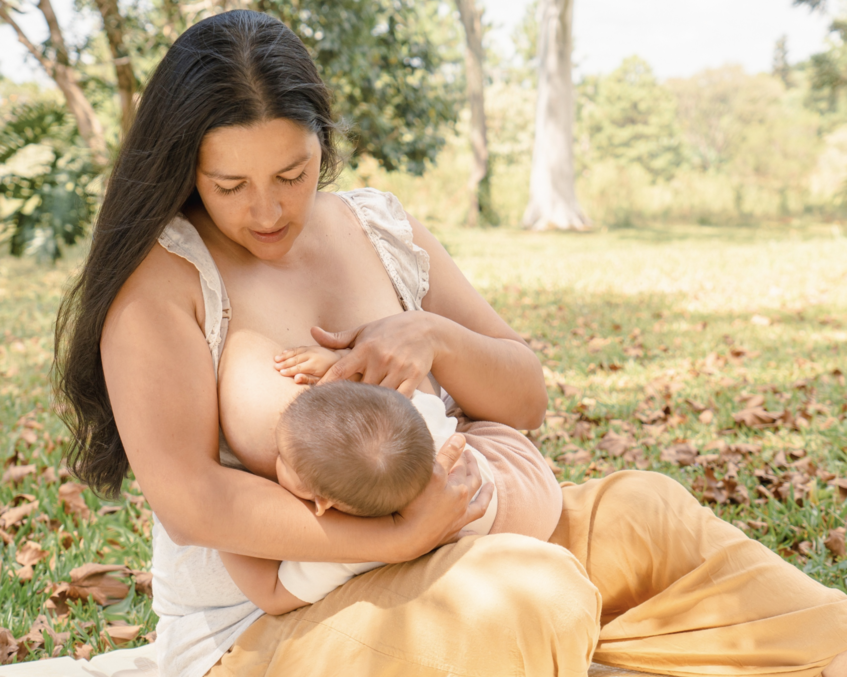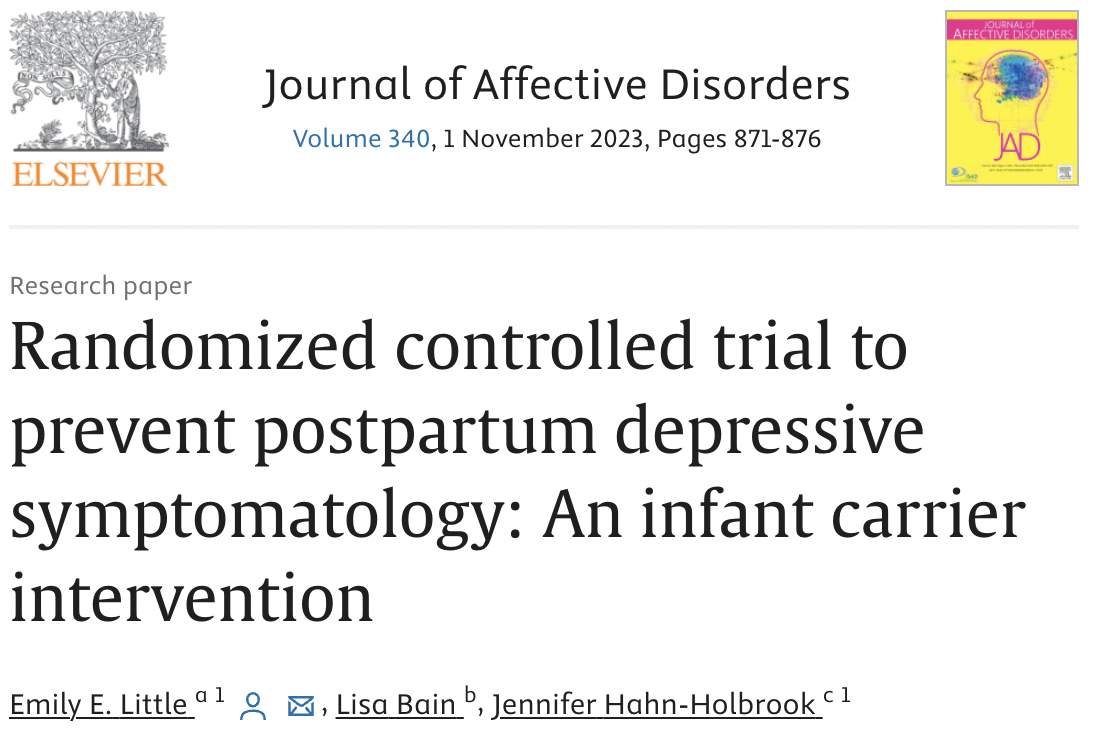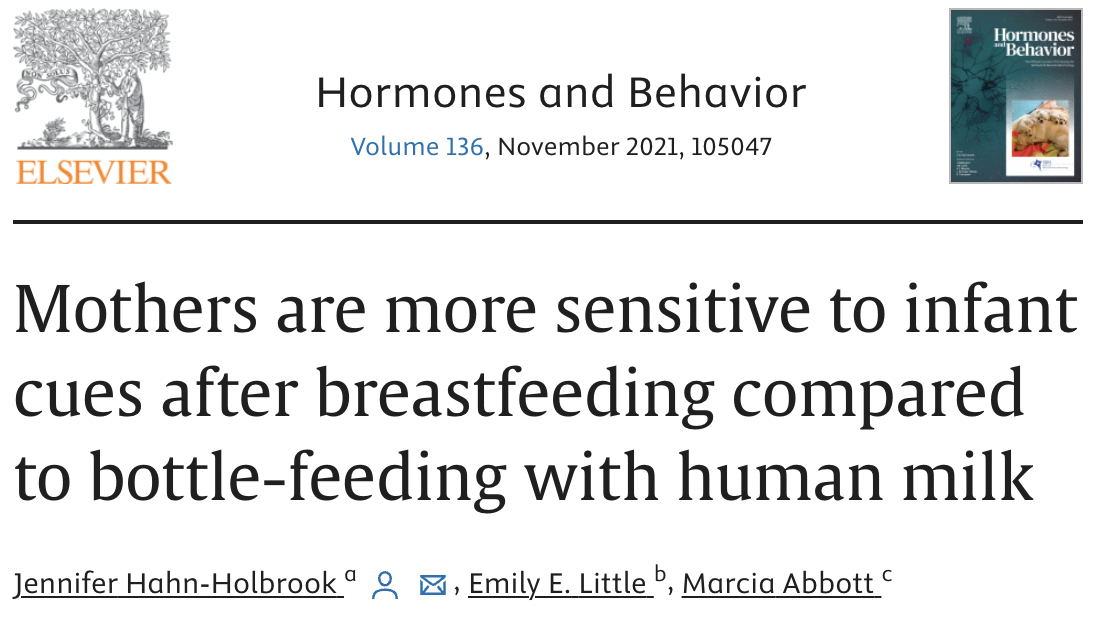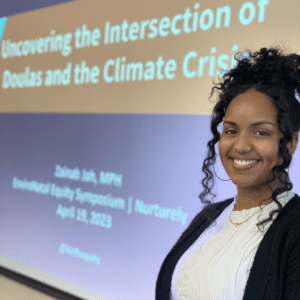Sharing the Stories that Matter
Get in Touch.
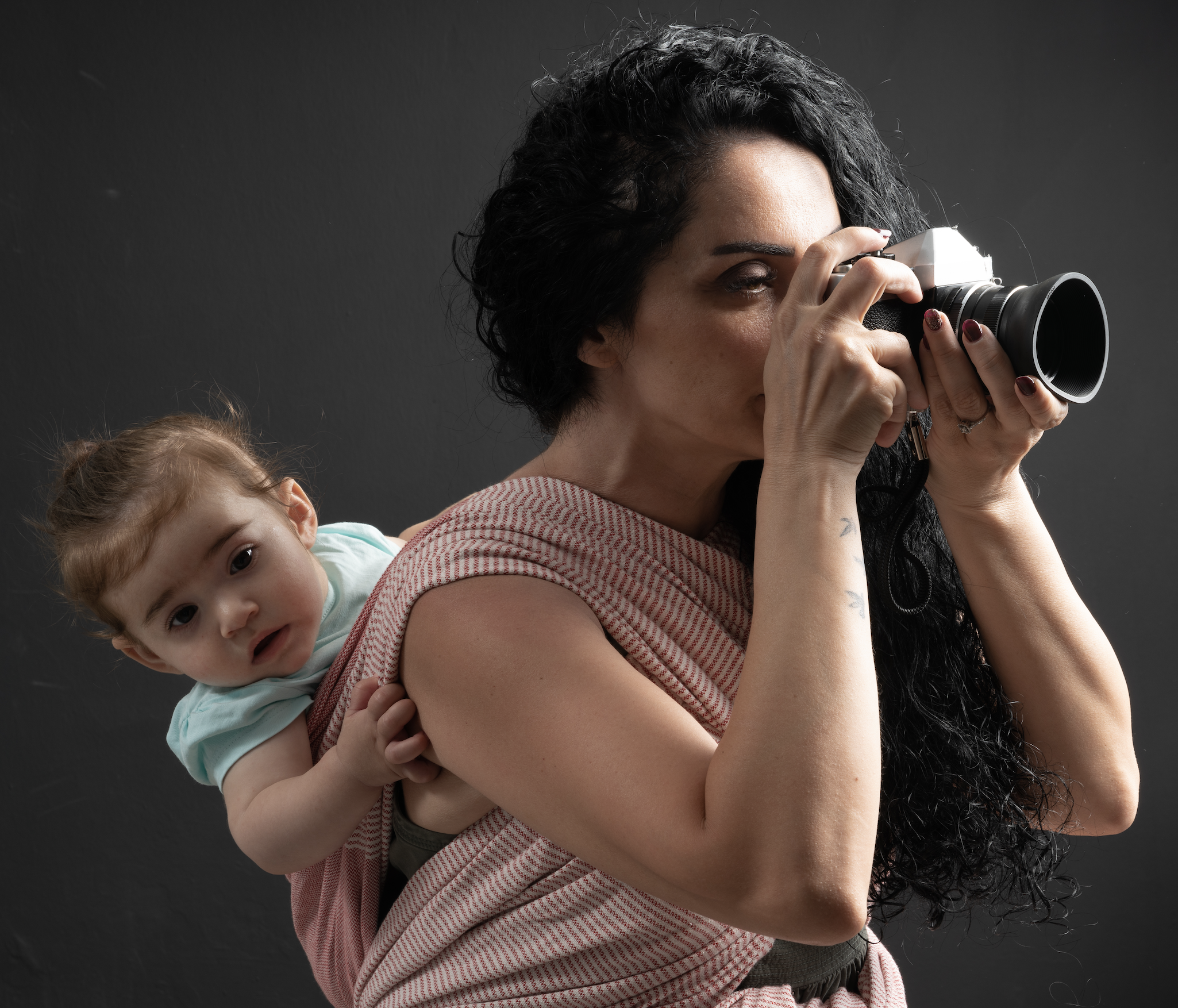
Are you on a media deadline? We're here to help.
Are you covering a story about perinatal and infant health equity… and how it relates to equitable care, resilient climates, postpartum preparation, human milk access, and workforce development, or global-local cultural connection? We’re here to help.
Click below to connect with one of our expert team members and be the first to know about our press releases. If you’re on a deadline, we’ll get back to you ASAP.
Featured Research Articles
Nurturely research showed that a randomized intervention with baby carriers reduced symptoms of postpartum depression
We already knew that when parents hold their babies skin-to-skin right after birth, it helps prevent postpartum depression. But outside of hospital contexts, it was an open question whether simply carrying babies without skin-to-skin contact would help. Nurturely Founder Emily Little, PhD, and colleagues at Global Communities and UC Merced conducted a randomized intervention where half of the parents received a soft-structured baby carrier to use with their baby starting at birth (and half received the carrier later). When measured at six-weeks postpartum with the Edinburgh Postnatal Depression Scale, parents in the carrying intervention group had decreased symptoms of postpartum depression.
Research from Nurturely Advisory Team Member Jennifer Hahn-Holbrook on responsiveness during breast- vs bottle-feeding
“Women randomly assigned to breastfeed were more sensitive to infant cues than women randomly assigned to bottle-feed. Prolactin levels did not differ between feeding groups, although prolactin was positively correlated with maternal sensitivity. Our results suggest that feeding milk directly from the breast (compared to bottle-feeding) increases maternal sensitivity towards infants, at least in the short term.”
Video Abstract: Carrying RCT & Lactation
Featured Videos
Cultures of Birth
Nurturely produced a mini-documentary on Mayan mothers experiences giving birth in the US and in Guatemala, exploring themes of culture, autonomy, and humility. Click below to schedule a virtual or in-person screening.
Lactation Equity Coalition
Nurturely joined forced with community members in Oregon to co-create the Lactation Equity Coalition.
Wombs & Wildfires
Nurturely works with physicians, birthworkers, and others to protect pregnant and postpartum people in the intensifying wildfire crisis
Birthworker Hub
The Nurturely Birthworker Hub not only trains aspiring doulas, we also raise awareness of the challenges faced by doulas working to make a sustainable career serving families.
Featured Presentations
EnviroNatal Equity Symposium 2023
Did you miss our EnviroNatal Equity symposium? In 2023, this event happened LIVE at Oregon State University, and the presentations (3+ hours!) were recorded just for you. Access now completely free!
Human Milk is a Human Right
At Nurturely, we talk a lot about lactation equity. But what does that mean exactly? Click below for this FREE ~10 minute talk on the racial, historical, and cultural injustices that shape human milk access by lactation researcher and Nurturely Founder, Emily Little, PhD, CLEC.
In the Media
Local non-profit teaches about effects of climate change on new parents and their babies
US National Climate Report Highlights Climate Harms to Pregnancy, Newborns
“We have seen US federal and state governments begin to grapple with the fact that the climate crisis is having a significant impact on human health... But what we are not seeing is authorities getting resources to perinatal community health workers or doing the big scale information campaigns needed.”
- Aver Yakubu, MHA, MPH, Nurturely Program Director
NIH selects next round of winners in the Connecting the Community for Maternal Health Challenge
The team will use a train-the-trainer model to teach home visitors on how to implement a carrier intervention and conduct a pilot study to assess the effectiveness of the intervention. This work has the potential to improve lactation and perinatal mental health in a population that faces high barriers to perinatal health equity.
Doulas Work on the Front Lines of the Climate Crisis
Doulas are unique in that they make home visits, said Jessalyn Ballerano, a doula in Eugene, Oregon. “I’m seeing if air is clean and safe, if there are any dangers, if there is food in the fridge, if they are eating regularly, if they have enough water, if they have easy water access,” she said. “It takes some experience and skills to successfully investigate that in a collaborative way with the family.”
Babywearing to Reduce Postpartum Depression: A Promising Intervention
“I think we’ve gotten to a point where postpartum depression is so normalized. And while that’s good to reduce stigma around postpartum mental health challenges, it’s not ok just to say we’re never going to focus on prevention and we’re just going to accept that the word postpartum is synonymous with depression. Why are we stopping there? Why is that the reality that we are accepting?"
- Emily Little, PhD, Nurturely Founder
Difficulty Breastfeeding: Human Uniqueness
Difficulty breastfeeding, in combination with modern marketing pressure of buying and using infant formula, has created a culture in Western society that does not facilitate knowledge sharing for successful breastfeeding. ...Outside of other primates, there is no evidence of occurrence of breastfeeding difficulty in other mammals who nurse their infants. In fact, most mammalian young (e.g., kangaroos, pigs) are far more proactive during the latching and sucking process, requiring little or no help from the mother to instinctually reach the nipple and successfully begin suckling.
Nurturely Blog
Connecting the Dots between Perinatal Equity & Current Affairs
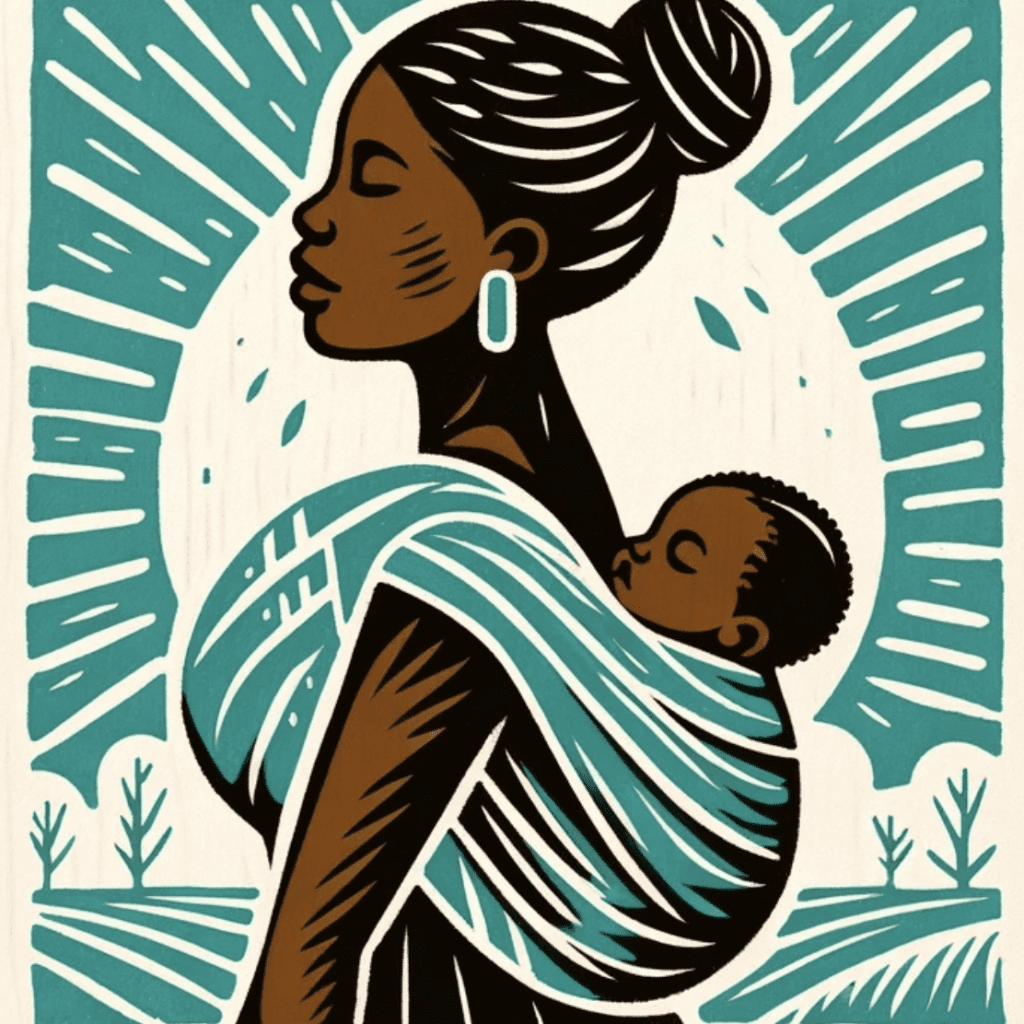
Carry a Baby, Change the World

Nurturely Statement Against Genocide
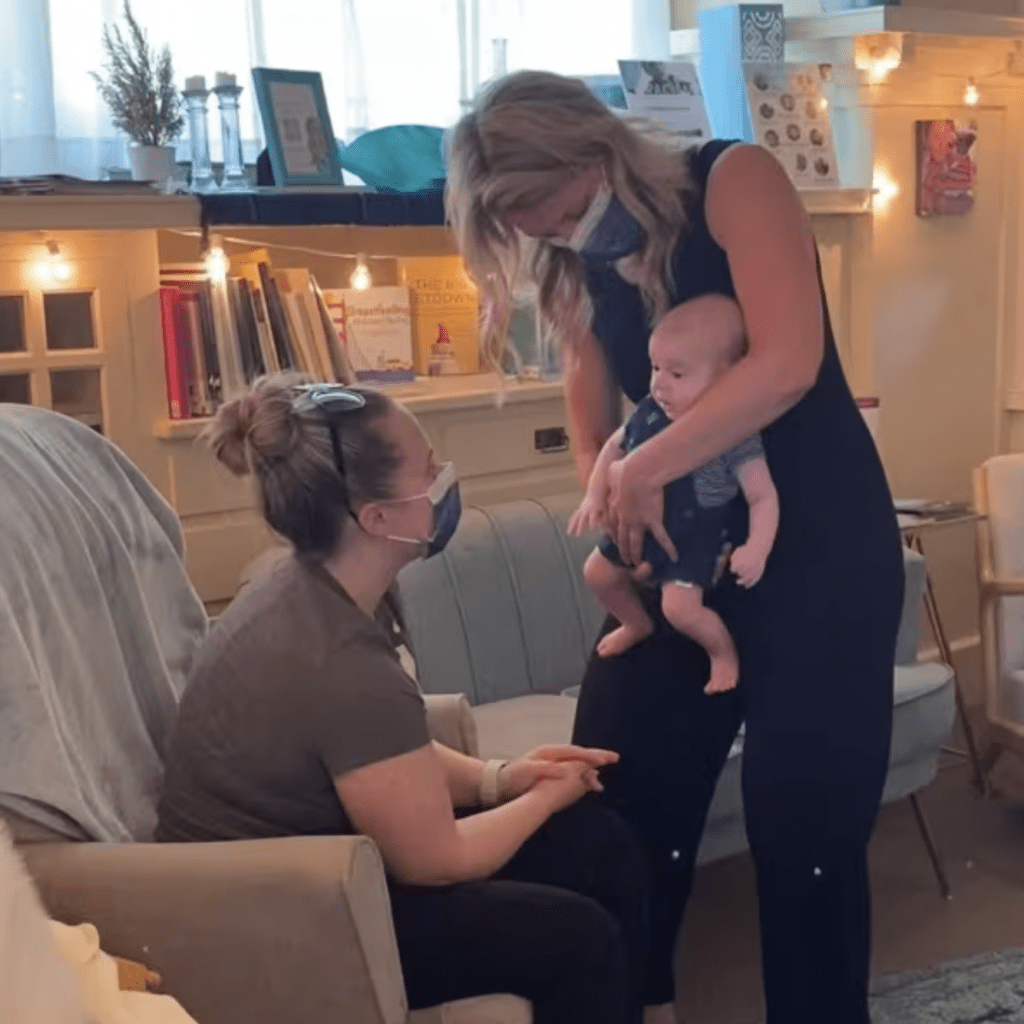
Partner Spotlight: Restoration Chiropractic and Dr. Kaitlyn

Nurturing Partnerships: Empowering Birthworkers with Lane Workforce Partnership

Culture, Choice, & Policies
